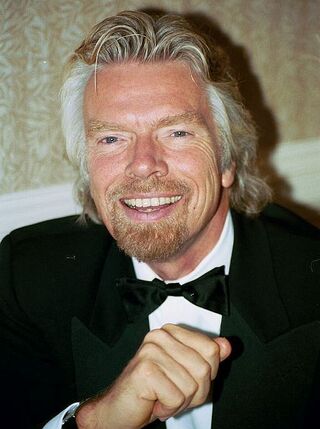Relationships
What We Can Learn from the Virgin Galactic Mission
Commentary: Growing up and growing down.
Posted July 15, 2021 Reviewed by Lybi Ma
Key points
- Psychological creativity is born of the healthy integration of childlike wonder and adult know-how.
- Generativity is the gift of giving renewed wonder, faith, and vitality to future generations.

As a boy, as a man, and as a perpetual student of the human soul, I was moved by Virgin Galactic’s milestone mission to the edge of space. Instead of Peter Pan or 38-year-old Neil Armstrong showing us epic flight, miraculous as they were, we saw a 70-year-old man embracing something that psychologically many of us never get to see anymore: a boy so well integrated with the man that you wouldn’t know where one began and the other ended, a new psychological universe embodied in a way that only the most creative of us adults can pull off.
It was a delight to see how Richard Branson united the dreams and wonder of the boy with the practical and tenacious know-how of the man, just before he took off his space seatbelt and soared in weightlessness for a few brief moments of sublime communion with our world and the worlds beyond:
“To all you kids down there. I was once a child with a dream of looking up to the stars. Now, I’m an adult in a spaceship with lots of wonderful adults looking down to our beautiful Earth. To the next generation of dreamers, if we can do this, just imagine what you can do.”
And it wasn’t just the amazing feat pulled off at 50 miles above our earth of the man with the rock star shock of blonde hair, the auburn goatee, and the space-age shades, but even more so the humble patriarch greeting his grandchildren on the ground that truly brought me to tears. On display here was one of Erik Erikson’s most beautiful psychological concepts, generativity, the profound capacity and commitment of giving back to future generations for a sense of renewed wonder, faith, and vitality. A paradoxical recognition of the love that can only be felt in full as we approach its loss, Erikson gave our youth-centric world an archetypal reminder of the true gifts of the wise old men and women of this Earth: to give back from what they have planted.
It was a sweet surprise when Branson’s flaxen-haired granddaughter celebrated: “Papa gone to the moon. Papa gone to the moon.” And, of course, Branson, ever the integrated self didn’t correct her. A creative individual who has united their childlike wonder with adult ingenuity knows not to prematurely disillusion children but rather hold the magic with them in a way they can understand. And so, to the moon it was.
And yet, Branson wasn’t Peter up there, pretending that there are no limits to what can be done, that family and relationships don’t matter or just tether you, or that our shadows as human beings and our environmental footprint don’t really exist. He didn't grandstand and pretend he did it alone without the thousands of scientists, engineers, and visionaries alongside him. Instead, as a patriarch in the best sense of the word, Branson went up to honor the fullness and beauty of his and our human family. In the words of inspirational scientist and human Stephen Hawking: we can use it to get a fuller perspective on who we are, why we are here, and how to preserve this fragile miracle of life.
Just maybe, he went up there to find out more than we ever dreamed we could find together. In Unity.
A man of our times, Branson made sure his crew was diverse and inclusive, representing the new world order of now and all times, showcasing the unity of which his mission is but a small part. I’m sure, like Lin-Manuel Miranda found out soon enough, there will be detractors about how unrepresentative it truly was, or how Jeff Bezos’ flight next week will be the one to truly go into space. But for me, watching as a boy, as a man, and as a psychologist who plumbs the depths of the psyche’s unique atmospheres and planetary motions every day, I was crying with joy at this unique moment when one man could remind us of what it means to be most fully human and why men deserve a shot again at having a fuller model for who we can be and how we can be of service to this charming little planet we inhabit together.


